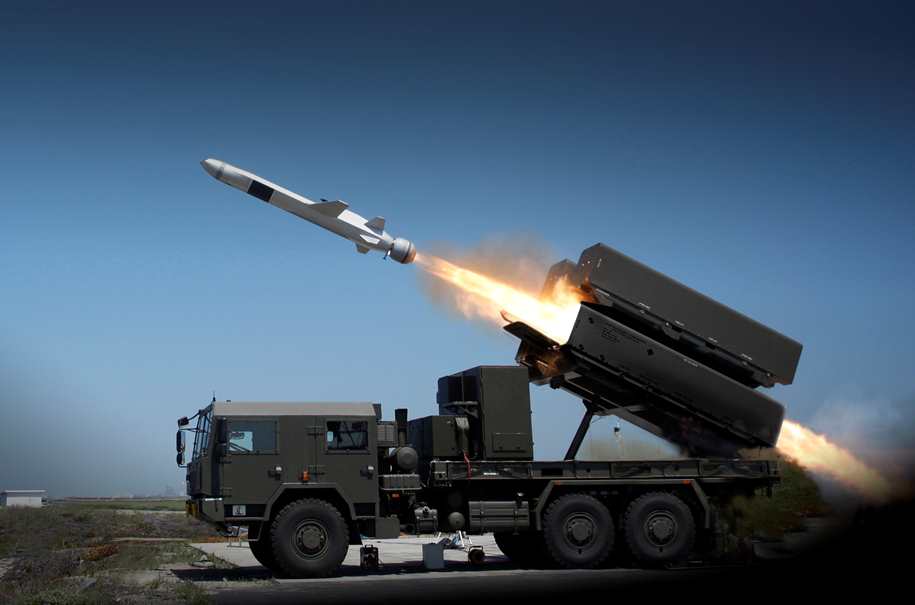
Raytheon was awarded a $208 million contract to arm Black Sea state and NATO member Romania with mobile coastal anti-ship missile batteries, the Pentagon announced in a Thursday contract statement.
Working with the Norwegian company Kongsberg, Raytheon will provide Romania an unspecified number of Naval Strike Missile Coastal Defense Systems as part of the deal that could be worth up to $217 million after all the options are exercised, according to the announcement. The bulk of the work will be done in Norway and at Raytheon’s facility in Tucson, Ariz., reads the statement.
Romania has a more than 100-mile coastline on the Black Sea – home to the Russian Navy’s Black Sea Fleet.
According to a 2021 report from Norwegian engineering magazine Teknisk Ukeblad, the deal would pay for two coastal defense systems that would amount to four mobile launchers and two command and control nodes for the batteries.
The NSM was developed initially for the Royal Norwegian Navy as a modern anti-ship missile with a range of more than 100 nautical miles for its surface fleet. The ground-based launcher was developed by Kongsberg in part for export sales paired with a command and control system.
“The primary missions for NSM CDS are maritime interdictions against sea targets from small and light ships made of Glass Fiber Reinforced Plastics (GFRP) to large naval combatants like destroyers and frigates and ships with [a] thick hull like icebreakers,” reads Kongsberg marketing material for the system.
“Secondly, land targets are handled by the NSM CDS. The land attack capability is primarily based on use of the military GPS but seeker-assisted land attack capability is also available if requested.”
The U.S. and Romania signed a foreign military sales agreement in 2021 to acquire the Naval Strike Missile Coastal Defense System. In addition to Norway and the U.S., Poland is fielding NSM. Australia, the United Kingdom, Canada, the Netherlands, Spain, Malaysia and Germany also plan to use the missiles.
In November, the U.K. Ministry of Defense reached a deal to outfit 11 Royal Navy warships with the NSMs in a direct deal with Norway as a replacement to its current Harpoon anti-ship missiles.
The U.S. Marine Corps have developed their own ground variant of ground-based Naval Strike Missile launcher – the Navy-Marine Expeditionary Ship Interdiction System (NMESIS). Marines strapped NSMs to a converted Joint Light Tactical Vehicle chassis operated by a remote control.
The U.S. Navy primarily fields NSMs on its Littoral Combat Ships for patrols in the Western Pacific.





